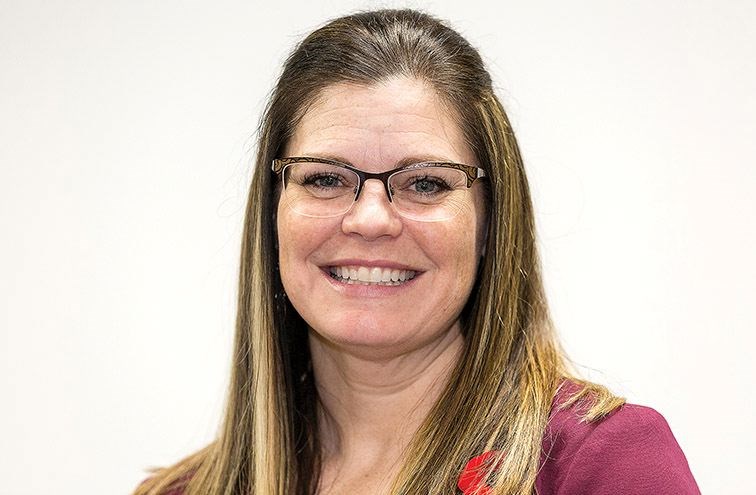In the two decades Anita Richardson has been stimulating young minds, as a teacher, principal and administrator, she's noticed a radical change in the way students learn and it's the education system that's had to evolve.
Technology has become a pervasive tool in classrooms and schools that no longer use a one-size-fits-all approach to connect with their students and Richardson, the newly-hired superintendent of School District 57, is convinced that willingness for teachers to adapt is the magic formula for creating more successful students.
"We need to meet kids where they're at if we want them to be successful," Richardson said. "We have to understand what they need as individuals to get there and what that looks like for them because everybody's picture of success is different."
The days of teachers operating in a vacuum in their own classrooms as their own personal kingdoms are gone. Richardson says collaboration is the name of the game and the sharing of ideas has become the predominant strategy in public schools as the most effective way to teach kids what they need to learn.
"When I came into teaching, people were great, providing resources and support, but there wasn't teachers sitting down and having meaningful deep conversations about kids and specific kids we have now," said Richardson. "Teachers are supporting each other in different ways by creating that network."
Hired last month to take over in Prince George from interim superintendent Rod Allen, the 47-year-old Richardson has been working as the associate superintendent of the Horizon school program for gifted students in Taber, Alta. Allen took over the SD 57 job on May 28, two weeks after Marilyn Marquis-Forster resigned after serving nearly three years at the position.
Richardson was born in Prince George but grew up in McBride, where she graduated from McBride Secondary School. A former principal of Mackenzie elementary and junior secondary schools, Richardson will start her job overseeing SD 57 and its nearly 13,000 students when classes resume in January.
"I've actually never lived in Prince George but I feel like the corridor from Mackenzie to McBride is home," she said. "I feel like I grew up in the Prince George school district but it is a different place than when I left, so recognizing that, I need to get really familiar and that takes relationships and getting to know people and hear their stories and that will be my focus from the start."
Richardson plans to give Aboriginal communities and their schools more input on decisions that affect how their children are taught and says the district will be open to new ideas. She plans to explore opportunities to work together as partners with Indigenous bands on after-school programs that combine homework with meal programs.
"There's a lot great things going on and building relationships with the Indigenous partners, Lheidli T'enneh and McLeod Lake Indian Band, that is important work that has been lacking," she said. "That's over 30 per cent of our population we're talking about."
One of her first official duties will be opening the new $44.3 million, 900-student capacity Kelly Road Secondary School, expected to be ready for next September.
Teacher recruitment and retention is also on Richardson's mind, with negotiations on a new teachers' contract in progress. The Supreme Court of Canada's November 2016 ruling determined the province acted illegally when it stripped teachers of the right to bargain on class size and class composition, resulting in hundreds of teaching jobs openings across the province. That, combined with B.C.'s lower salaries as compared to other provinces, has made it difficult to recruit and has helped create a shortage of qualified full-time and on-call teachers.
"We have a lot of new teachers and also a need for more teachers, there is a bit of shortage," she said.
As the mother of two teenagers, 14 and 16, one of whom is a club volleyball player, Richardson is in favour of having phys-ed specialists in elementary schools to teach gym class, rather than forcing teachers who don't have athletic backgrounds to supervise gym activities. In her job with Horizon she's seen the pluses of having physical education specialists trained in physiology and body mechanics and is convinced it's a better way to encourage participation and ultimately tackle the growing problem of child obesity.
“In Alberta, it’s not uncommon,” Richardson said. “It would be most common, as long as it was a larger elementary that you would see a phys-ed specialist teaching phys-ed in an elementary school. I evaluate all new teachers in our (Horizon) district and I’ve seen some masterful phys-ed teachers and the way they have kids participating.
“I don’t know what the opportunities for that are for that at this time. I do know regulations are a bit different for B.C. where you’re certified K-to-12 coming out with your teaching degree and there are some structures in place that may work against that. I do think physical literacy and the importance physical health plays in mental health is something as a society we need to be paying attention to.”



